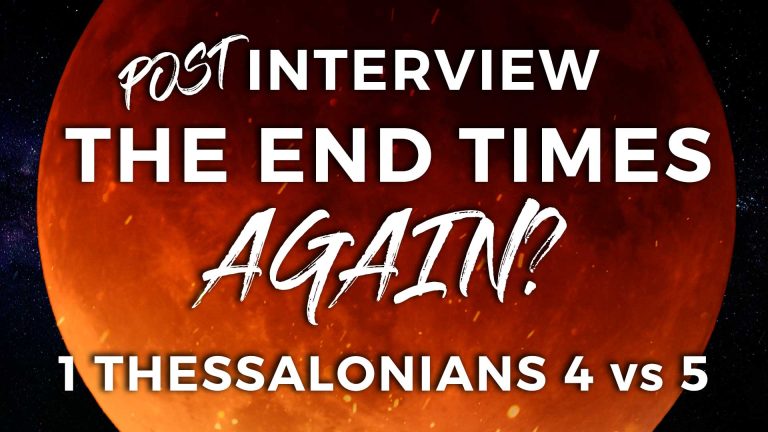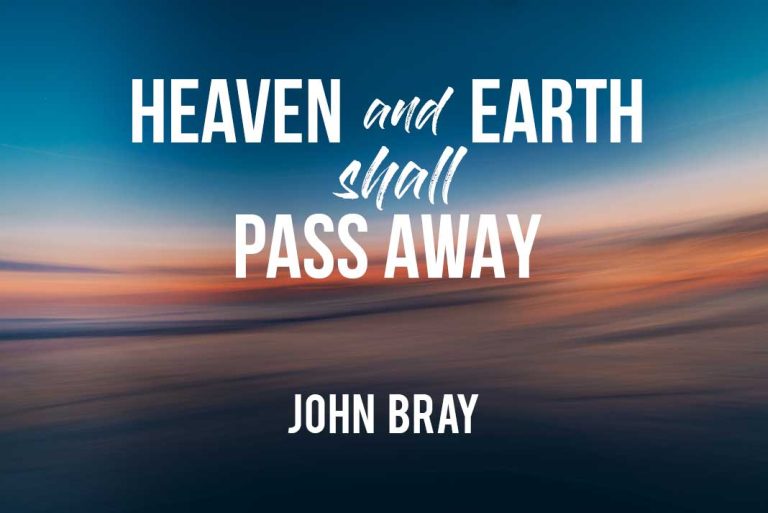So, there’s this story. A story saturated with love, hope, and a glimpse into a paradise experience that transcends what the human mind can fathom even with a lifetime of thoughts. One that many have heard, and some even believe. A story of such unique craft and design that instead of inciting appreciation for the design, it somehow encouraged a sense of doubt and disbelief. And this doubt, this disbelief, is what makes this beautifully written story so full of tragedy. And to know that this story is not a story at all, but our reality, is what makes tragedy so real for us today.
The creation of the universe has to be one of, if not the greatest displays of power that is contained in one being. God, in His infinite wisdom, superiority, and with His ubiquitous nature, carved out every single detail of this world, even those details that exist in the tiniest, most inconspicuous spaces. The stars are aligned according to the words He spoke. Fish swim. Dogs bark. The sun revolves. Water flows. Mankind exists. And mankind, the man that God created for His pleasure and through His unlimited power, is the same man who did not believe that everything he needed was so lovingly and eloquently presented to him without him having to work or ask for any of it. This man wanted more and because of the inquisition into the things that he was not prepared for, he got what he was not looking for but all he deserved. This is the story of why we experience tragedy today.
If you remember anything about Genesis, the creation of man, and the tree of knowledge of good and evil, you probably remember God’s command to not eat, that wretched woman—Eve, an apple, and a snake. When God created the heavens and the earth, before man was even formed, God had already prepared and groomed everything for him. God provided food, water, light, animals, celestial bodies for navigation, greenery, and everything that man would need (in a perfect world) to thrive and survive. And after God put everything that man needed in place, He brought man into this world. But not only that, He gave him a “help meet” to walk alongside him because God knew that the perpetuity of humanity needed this woman. And God also knew that eventually we were all going to need each other. But just like everything came together for man and woman, because of man and woman, everything falls apart.
The Fall of Man and Change of Heart
As we fast forward through the creation story, we see how Eve was deceived by Satan, through the serpent, by eating the forbidden fruit of the tree of knowledge of good and evil, because she ultimately did not believe God. It wasn’t enough to have everything that she needed; she wanted to be like God. And from there, we see how Adam followed suit in eating of the tree and how his disobedience to God’s command brought doom and gloom into the world. There were cursings passed out to all parties and humanity was now the fruit and mirror of a sinful man. We all would now be born with a sin nature, just like the one our earthly father now had. But thank God through another man, “who thought it not robbery to be equal with God but made Himself of no reputation…” (Philippians 2:6–7, KJV), we were given a way out. But not everyone takes this way out, and this is what causes devastation and anguish to those who inhabit the earth.
We don’t have to go back far to see just how evil man’s heart can be. There have been more mass shootings in the US this year alone than there have been days. If you rewind back just recently to Chattanooga, Georgia, and Texas, you’ll see the result of an evil heart. If you venture back a little further, but not too much, to New York, you’ll see the heart of another. But even if we temporarily place a veil between us and what is happening around us presently, we can go back 11 years to 9/11 and we’ll see vile hearts dripping with the blood of those made in the same image. And go even further back 100 years and you’ll see that the proportion of change to things staying the same is almost equal. If you look inside schools, you’ll see evil hearts preying on innocence. And if you look inside churches, you’ll see that evil doesn’t have a preference. But if you glance over at Matthew 24, you’ll see a discussion on the signs of the end of the age. You’ll see how tragedy and adversity will be the beginning of “birth pains.” Jesus, in Matthew, tells us that, “many will fall away and betray one another and hate one another.” And because of the “increase in lawlessness, the love of many will grow cold.” And this cooling down of the heart is the agent of our pain. But believers knew this would happen. We expected this. But just as you watch a loved one suffer at the hands of a terminal illness for years, when the day comes that they take their final breath, are you ever really prepared? Do you ever really know how to respond to all of the calamity and affliction? Do you really expect for that day to come that you hear that a lone gunman walks into a school and takes the lives of young, innocent children? And then you ask yourself: If this is what we should expect, is this our new normal?
As you scan the waves of emotions of people in the world, you’ll see the saddened hearts of many who weep for the world we live in. We know what we want to see happen and why there is something that we need to do, but we don’t always quite know what to do. We’re tired but emboldened. Confused but sure. Angry but sympathetic. Stagnant but ready. Frozen but anxious. Why? Because every day brings about a new tragedy to mourn and a new plan to mount. The frequency of devastation has become so close, that it’s almost as if we don’t have time to adequately grieve. We can’t stop and properly mourn those in Buffalo because we must start over in grieving for those in Texas. So that begs the questions: Are we really grieving? Are we really mourning? Or are we just learning to cope? Have we been unintentionally “coping” for so long that we haven’t properly grieved ourselves into the right action? Have we learned a behavior that is now set to match our circumstances? Have we accepted this as “normal” and just don’t know it?
If you think back to the years of slavery and look at what we currently face today, you have to ask yourself: How far have we really come as it deals with the heart of man? Over 100 years later and we can write about the same things Black people were fighting against and afraid of back in the days of Emmett Till and Dr. Martin Luther King, Jr. Is this because some have accepted this as “normal?” Or is the tragedy we face daily because we haven’t had the courage to attack the root of our problems instead of trimming the branches? Consider the overturning of Roe vs. Wade. Have we examined the root of abortion and pregnancy and sought ways to attack this beyond “planned parenthood?” Have we gone back years to carve out and address what is at the core of racism and the history of systemic oversight and negligence that has gone unchecked? Have we done our due diligence to unearth the cause of Black-on-Black crime? Have we dug deep enough to reach the bedrock of the opioid epidemic? Maybe the answer to these questions for some is yes but the seemingly, never-ending devastation appears to suggest that for most it would be no. Is this because this is our new normal?
Hope for a Better Normal
When we look at gun violence, mass shootings, sexual abuse in the church, we often look at the instrument that the damage comes through instead of the subject that the damage comes from. Earlier I posed a question of how far we’ve come as it deals with man’s heart, and I believe that the lens through which we see tragedy helps to answer this question. When we hear of gun violence, we automatically laser focus in on gun control. But who holds the gun? When we hear of sexual abuse in the church, we turn our nose up at the entire church community. But who committed the abuse? It’s not the Church. It’s not guns. It’s not politics. It’s people. The people who hide behind the veil of the Church, the barrel of the gun, and the unbalanced scale of legislation. It’s people acting out what is in their malevolent hearts. And the only way to combat the corrupt, cruel, vicious hearts of people is with Christ. He is how we fight back against what is seeking to prevail as our new normal. This is how we respond. We respond to the heart by knowing that at the root of any evil act is sin, and sin is a heart issue. And in order for the heart to be changed, we must allow God, through the work of the Holy Spirit, to fix the hearts of those who want change. We must see God as the one, true cardiothoracic surgeon, but we also have to understand that consent has to be given to lie on the table for Him to perform the surgery. And as the believer continues to work to spread the good news of Jesus Christ and people will consent to lie on the table, God will operate on their heart and prompt their repentance so that they can turn away from a heart of hate to one of love for those whom He created.
Most people will never forget how a global pandemic, in the form of COVID-19, took our world by storm. With so many advances in medicine, technology, and science, we were uprooted by an unseen, unheard of, unrelenting virus. Masks mandates were enforced, cities shut down, people were on edge, and it seemed like the pandemic would never end. But here we are. Many thought that the guidelines and restrictions enforced during the pandemic would be our new way of living, but we soon were on the other side of the pandemic, waving goodbye with caution, and going back to our everyday lives. So, what we thought would be a new normal for us turned out to be a pause in what we knew to be normal and a grappling of how we should take on a better normal instead.
And the same goes for the tragedy we see each day. Even though we are so frequently faced with catastrophe, we should not see it as something to get used to. Yes, we should take time to grieve the devastating loss of life. We should mourn, cry, scream, yell, talk to a therapist, but we should also have hope. Hope to walk through each day knowing and believing that the enemy is already defeated. And hope that Christ will fill the hearts of those who will accept Him. And through this acceptance, we may still mourn tragedy and loss, but we mourn it with the expectation that we will one day see our brothers and sisters in a better place, celebrating a better normal with an eternal, loving God.
Dr. Brittany Dodson is a licensed, practicing pharmacist at the University of Arkansas for Medical Sciences in Little Rock, AR, a Christian singer/songwriter, and podcast host of The Traditional Millennial. Learn more about Brittany at https://linktr.ee/brittanydodsonmusic.








